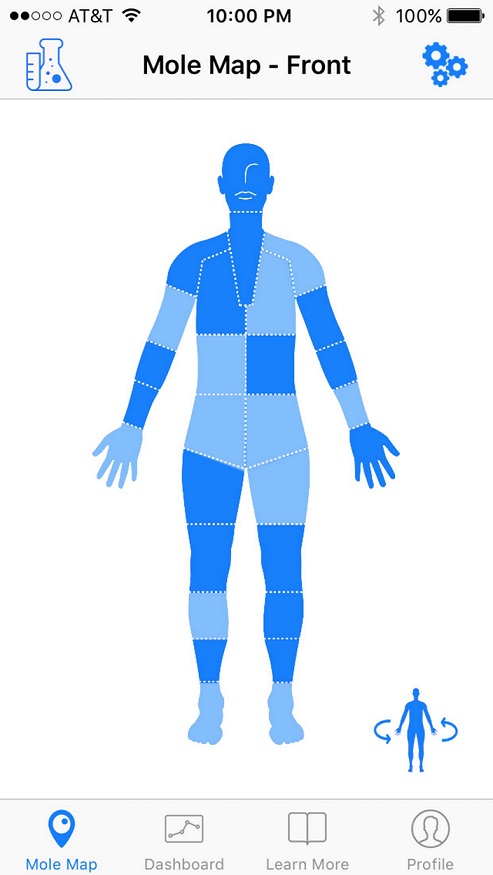By Daniel Webster, PhD, Damon Runyon-Philip O’Bryan Montgomery Jr. MD Fellow
The Damon Runyon Cancer Research Foundation recently asked some of our current award recipients how cancer will be prevented, diagnosed, and/or treated differently in the future. What can a future cancer patient, say 10-20 years from now, expect to experience? Their responses were fascinating, and over the next few months we will share their visions for the future on this blog.
“Today’s suggested cancer prevention regimen involves a yearly physician-led checkup starting around middle age. In 20 years, preventing cancer will entail owning a detailed history of your own biological “baseline” and measuring yourself against that baseline early and often. A future patient would have weekly or monthly self-checkups starting at age 18. A checkup would use a disposable, smartphone-attached sensor to non-invasively sample blood, sweat, or tears to detect circulating cancer biomarkers or immune dysfunction. Detecting significant and persistent oncogenic signatures deviating from baseline would trigger an e-consult or an institutional intervention for early detection when a tumor may still be curable.
While most of this description is far from realization, emerging technologies like direct-to-consumer genomics, ResearchKit, and smartphone-enabled personal trackers suggest this idea won’t be just science fiction. This vision guides my own research goals, and is the reason I built an iPhone app called Mole Mapper. This app uses ResearchKit and the phone’s camera to measure moles on the skin, establish a personal baseline, and detect changes that may progress towards melanoma. At the Damon Runyon Fellows’ Retreat, I met my collaborator Stephen Friend, and Mole Mapper is now among the first IRB-approved research studies that uses a smartphone for recruitment, consent, enrollment, measurement, and data collection.
In 20 years from now, when my newborn son turns 20, I hope that he will be able to check his own biology like we check the weather today, and that cancer may be considered more of a temporary nuisance than a deadly disease.”








